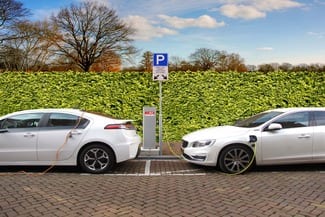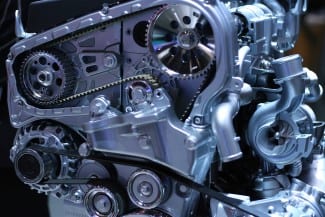Zero-Emission Vehicle Infrastructure Program (ZEVI): Funding for EV Charging Stations
The Zero-Emission Vehicle Infrastructure Program is providing applicants up to $5M to deploy a network of zero-emission vehicle charging and refuelling stations.

The Zero-Emission Vehicle Infrastructure Program is providing applicants up to $5M to deploy a network of zero-emission vehicle charging and refuelling stations.

A Vancouver, BC company has received $1,181,944 in Canadian government funding to develop and scale up production of advanced battery materials. Nano One Materials Corp. received cleantech funding from Sustainable Development Technology Canada (SDTC or SD Tech), for a project that will provide battery technology for electric vehicles and renewable energy storage. This recent installment…

While the transition to full autonomy will be gradual, technology developers and manufacturers need to be well ahead of consumer demand to push the technological readiness of autonomous vehicle systems. Constant research, development, and testing will help ensure that autonomous and connected vehicle technologies can be deployed once market and regulatory conditions support implementation. Having…

UPDATE: The Green Freight Assessment Phase is now closed and not accepting applications. The deadline was November 1, 2019, OR until funds had been depleted. The Implementation Phase is still open. Heavy-duty vehicles account for some of Canada’s highest transportation-related greenhouse gas emissions. While there is a lot of discussion about increasing the number of…

The Government of Canada has heightened the importance of decreasing its national greenhouse gas (GHG) emissions within the transportation sector – and is seeking an increased adoption of zero-emission vehicles (ZEVs) to help Canada transition to a low-carbon economy. To address these initiatives, there are a multitude of government funding programs available for businesses to…

UPDATE: This program is closed and not accepting applications. This page will be updated once a new deadline is announced. The electrification of vehicles has come a long way, with more and more Canadians and global automotive customers shifting their mindset away from internal combustion engines (ICEs). As more consumers are beginning to understand the…

Canada is continuing to adopt more clean technologies, batteries included. The battery industry has grown worldwide, particularly in the clean tech sector for electric vehicles and renewable energy. Allowing for more innovative businesses to produce and commercialize batteries is an important step forward for Canada, as the industry is valued at $23 billion. There is…

Few automotive trends require foresight into technology development, consumer preferences, and regulatory requirements like connected and autonomous vehicles. For C/AV technologies to reach mass market adoption, all three of these elements must align, with consumers and government regulators being confident in the technologies used. Without tested and proven high-quality systems, governments won’t let C/AVs on…

The automotive industry is preparing for a future where consumers can purchase a wide range of powertrain types. Although internal combustion engines (ICEs) will continue to represent a large portion of the market, battery electric and hybrid options will grow in popularity and become a much more widespread option. OEMs are preparing for this reality…

and autonomous vehicles are getting closer to being road-ready and manufacturers need to anticipate the shift. OEMs are doing a great job of phasing-in connected and autonomous vehicle technologies; this has made it easier for consumers and automotive suppliers to keep up. The implementation of new C/AV technologies in each model year is likely to…